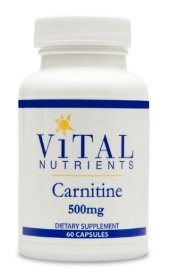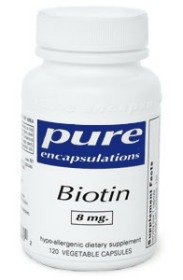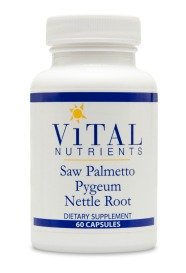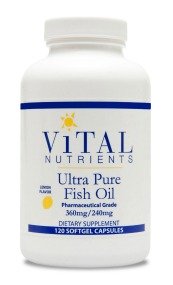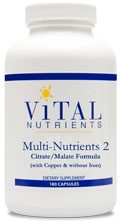8 Natural Female Hair Loss Treatments to Think About
If you want to have healthier hair, you need a healthier body with a more balanced hormone pattern.
The most common form of female hair loss is called "androgenic alopecia", which is thought to be caused mostly by having too much testosterone. Testosterone production is indirectly stimulated by a poor diet. An incorrect diet -- the "standard American diet" -- is responsible for the widespread incidence of "insulin resistance", which is an inability to efficiently utilize insulin.
1. An Improved Diet Is Necessary
The problem with insulin resistance is that it can lead to increased testosterone production, increased potency of testosterone, as well as increased chronic inflammation. Both testosterone and inflammation are strongly implicated in hair loss.
So the best place to start with getting your hair back -- or saving what you still have -- is to improve the quality of your diet so that you can better rebalance your hormones and reduce inflammation.
The Natural Solutions for Female Hair Loss e-book has a detailed diet to normalize your testosterone and other hormones so that your hair will stop falling out and you can set the stage for hair regrowth.
This diet is also supportive of healthy hair because it is free of junk food and is high in nutrients that are essential for your hair to be strong, healthy and look good.
Nutritional Supplements May Help
The "Natural Solutions for Female Hair Loss" e-book also includes a review of 7 herbs and 26 nutritional supplement that research has shown either slow scalp hair thinning, or promote growth. We'll review just a few of them here.
2. L-Carnitine
The University of Lubeck in Germany conducted an experiment on human hair. They discovered that l-carnitine promotes hair growth. Exposure to carnitine stimulated hair shaft elongation and reduced hair cell death in this study.
The researchers concluded, "Our findings suggest that L-carnitine stimulates human scalp hair growth..." They further encourage one to explore l-carnitine " as a well-tolerated, relatively safe adjuvant treatment in the management of androgenetic alopecia and other forms of hair loss."
Low levels of B-vitamins can lead to unhealthy hair and set the stage for unnecessary hair loss.
Among the B-vitamins, biotin appears to be the most important. It is involved in the process of healthy hair growth. It's good for your nails too! This is why some shampoos contain biotin.
The reason for this is that hormone and enzyme receptor sites on a woman's scalp are located differently as compared to a man's scalp. Therefore, changes in hormone levels affect the hair follicles of women in locations that are different from men.
3. Biotin Supports Healthy Hair and Nails
In high doses, biotin can be effective in assisting restoration of hair growth, with no known side effects.
A high dose might be in the range of 5,000-8,000 milligrams daily.
4. Hair Loss and Saw Palmetto
Saw palmetto is a nutritional supplement extracted from the berries of
the saw palmetto tree that can inhibit the production of a type of male
hormone called dihydrotestosterone, or DHT.
Women with PCOS tend to have higher levels of DHT than other women.
Excessive
levels of DHT in women has been linked to acne, hirsutism (hair growth
in the "wrong" places), and female pattern hair loss.
Female hair
loss is one of the most troubling and difficult aspects of polycystic
ovary syndrome. It is caused in part by DHT, which causes the hair
follicle to shrink and thus causes the hair shaft to be discarded. The
result is thinning hair on the scalp.
The Journal of Alternative
Complementary Medicine published a study showing that saw palmetto may
slow down this hair loss process. This was a small study of ten men.
Six of the ten men taking saw palmetto had reductions in their hair
loss.
The type of hair loss that men have is similar to the most
common type of hair loss that PCOS women have. Therefore, if saw
palmetto works for men, it should also be helpful for women who have
PCOS and hair thinning.
Because of its inhibitory effect on the
male hormone DHT, saw palmetto should be useful for acne and hirsutism
in addition to hair thinning.
5. Omega-3 Oils and Antioxidants Reduce Hair Loss
The Laboratoires Innéov in Paris ran a 6-month study of 120 women who had female hair loss. Some of the women were given a nutritional supplement formula containing essential fatty acids (such as omega-3 oil) and antioxidants. The results at the end of the 6 months: 89.9% of the women had reduced hair thinning; 86.1% had an increase in hair diameter; and 87.3% had increased hair density.
This research illustrates that what you put into your mouth can affect your hair. That includes nutritional supplements.
Also, omega-3 fatty acids, such as those found in highly purified fish oil, are helpful for preventing dry, brittle, or thinning hair.
6. A Form of Vitamin E You Never Heard About -- Slows Down Hair Loss
The School of Pharmaceutical Sciences at Universiti Sains Malaysia in Malaysia did a study of 38 people between ages 18-60 with different types of scalp hair issues. They were divided into two groups.
One group was given a placebo pill while the other group was given a nutritional supplement consisting of 50 mg. of mixed tocotrienols. All the people taking the tocotrienols except one had an increase in hair density within 8 months. Forty percent of them had at least a 50% increase in hair density.
So what's a tocotrienol?
Vitamin E refers to a group of 8 compounds. Four of these are tocotrienols. The other four are called tocopherols. Most cheap nutritional supplements only contain alpha tocopherol, which means you're missing 7 other forms of vitamin E.
The fact is, you need all eight forms of vitamin E.
In the case of protecting your hair from oxidant stress, tocotrienols are something you want to look into. You can get some tocotrienols from rice bran oil, coconut oil, and palm oil. Tocotrienols are also available as a nutritional supplement.
Tocotrienols (and fish oil too) are also important for reducing fatty liver disease, which is a disorder that perhaps 50% of PCOS women have.
Is weight an issue for you? I just saw some research indicating that tocotrienols reduce "hyperplastic obesity in humans". (Hyperplastic obesity is the worst kind, where there is a greater-than-normal number of fat cells that are also larger than normal.) This is an intriguing topic we'll discuss another time.
7. Don't Forget Minerals
A deficiency in minerals such as manganese and zinc may contribute to hair loss. You can prevent this with a higher quality diet or you can take a high-quality multi-vitamin/mineral supplement.
8. Shampoo if Oily Scalp
If you have an oily scalp along with thinning hair, frequent shampooing is advisable. Surface oils in your scalp contain testosterone, which can cause the hair follicle to shrink and the hair to fall out.
Related Articles
- Loss of Hair - What You Need to Know
- What Causes Thinning and Loss?
- Conventional Treatments
- 25 Burning Questions Answered - Part 1
- 25 Burning Questions Answered - Part 2
Sources:
Prager, N et al, A randomized, double-blind, placebo-controlled trial to determine the effectiveness of botanically derived inhibitors of 5-alpha-reductase in the treatment of androgenetic alopecia, J Altern Complement Med. 2002 Apr;8(2):143-52
Le Floc'h C, et al. Effect of a nutritional supplement on hair loss in women. J Cosmet Dermatol. 2015 Mar;14(1):76-82.
Beoy LA et al. Effects of tocotrienol supplementation on hair growth in human volunteers. Trop Life Sci Res. 2010 Dec;21(2):91-9.
Get Answers to your Questions about
- Fertility
- Weight Control
- Hair Loss
- Stress
- Unwanted Hair
- Acne...and more!
FREE PCOS Report
and Newsletter

Your email is safe with us. We respect your privacy, and you may unsubscribe at any time.
Recent Articles
-
PCOS Long Journey to The Happy End
Apr 30, 18 07:24 PM
Hi Girls, Maybe my story will have one day a good end but I am not there yet. Until I was 31 years old I lived my dream, having lovely husband, good -
PCOS and Miscarriage
Apr 17, 18 04:03 PM
Proper diet and natural supplements can help the body maintain a pregnancy through successful delivery.
-
How to Deal with PCOS and Stress
Apr 04, 18 04:19 PM
Your body has a natural capacity to heal itself if you provide it with the necessary tools.

